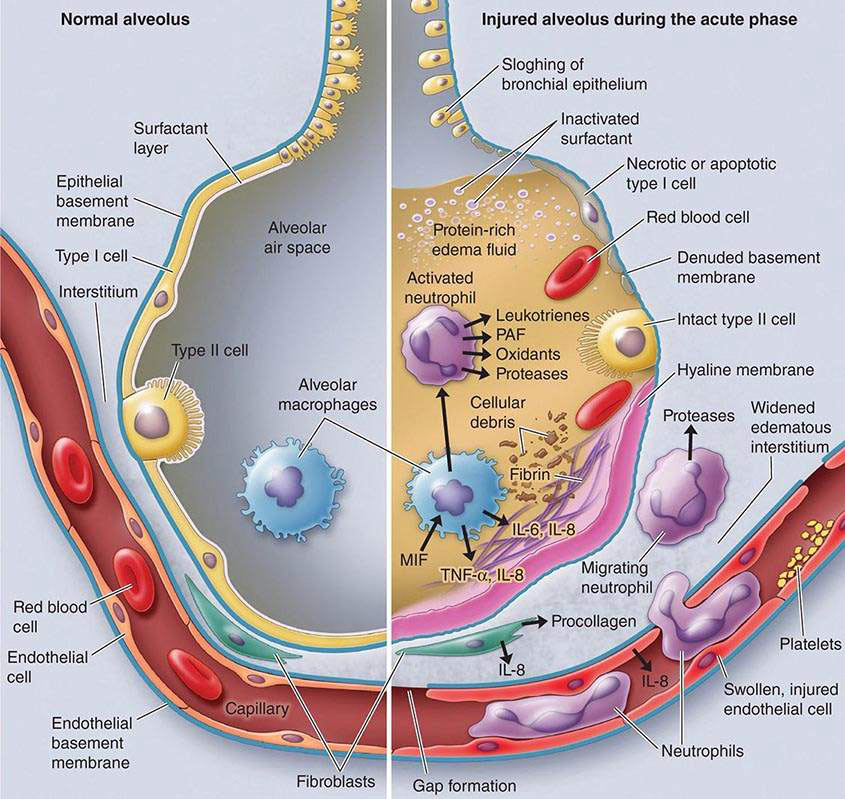
microRNA blocks life-threatening ARDS
A team of US and German researchers has found that neutrophils secrete a regulatory RNA into lung tissue that protects against harmful inflammations.
Overexpression of miR-223 could clear the way toward much needed treatments for acute respiratory distress syndrome (ARDS). ARDS has a fatality rate as high as 50%, and is characterised by fluid accumulation in the lungs after infection or injury.
Viola Neudecker from University of Munich (LMU) and colleagues protected mice against harmful lung inflammation they had artificially triggered by infection with methicillin-resistant Staphylococcus aureus (MRSA) bacteria by treating the rodents with nanoparticles coated with miR-223 (Sci Transl Med., doi/10.1126/scitranslmed.aah5360). Animals lacking the miR-223 gene had more severe lung inflammation after acute lung injury from mechanical ventilation and were more likely to succumb to MRSA infections, as compared to control mice.
The researchers demonstrated that neutrophils provided miR-223 to lung cells within microvesicles, which they visualised inside the lungs of living mice using intravital imaging. miR-223 regulates expression of the PARP-1 protein. When the scientists repressed PARP-1 in mice lacking miR-223, the animals had less severe inflammation and fluid accumulation in their lungs. According to the authors, future studies might reveal other targets for miR-233 that could also help preserve lung integrity.


 SLAS - Alexandra Csuport Photography
SLAS - Alexandra Csuport Photography Phabioc GmbH
Phabioc GmbH